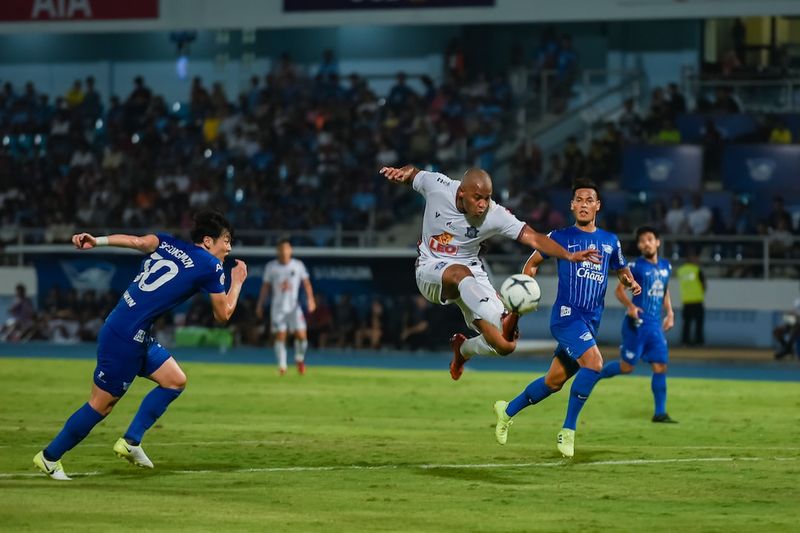Tottenham Hotspur Distances Itself from Owner Joe Lewis
Introduction
Tottenham Hotspur Football Club has recently taken steps to emphasize that Joe Lewis, the Bahamas-based billionaire who has long been regarded as the club’s owner, is no longer connected to the club following his recent charges of insider trading by US federal prosecutors. This development has brought attention to the change in ownership structure at Spurs, which occurred in October 2022 but went largely unnoticed at the time.
The Change in Ownership Structure
Prior to October 2022, Joe Lewis held an 86.58% stake in Enic, the investment company that owns 70.12% of Tottenham Hotspur. The remaining 29.88% of Enic was held by Spurs chairman Daniel Levy and certain members of his family. However, in October 2022, Lewis stepped back from his publicly stated position at Spurs, a move that was approved by the Premier League’s board. As a result, Lewis is no longer considered the owner of the club.
Bryan Antoine Glinton and Katie Louise Booth, both Bahamas-based lawyers with no background in football, were appointed as trustees to manage the Lewis Family Trust on behalf of Lewis’s family. This change in ownership structure was recorded at Companies House. It is worth noting that Lewis has always entrusted Daniel Levy with the day-to-day running of the club and rarely gets involved in the decision-making process.
Editorial: Impact on the Club
The recent charges against Joe Lewis and the subsequent distancing of Tottenham Hotspur from him have undoubtedly created a challenging and uncertain situation for the club. The scandal has not only brought negative attention to the club but has also compounded the existing difficulties surrounding star player Harry Kane’s future and the need to replace key personnel such as managing director of football Fabio Paratici.
Furthermore, the timing of the charges against Lewis could not be worse, as the club is navigating multiple issues, including the potential departure of club captain Hugo Lloris and delays in the appointment of the incoming chief football officer, Scott Munn. The club’s manager, Ange Postecoglou, who is still familiarizing himself with life at Spurs, must now contend with the additional distractions caused by Lewis’s legal troubles.
Corporate Governance and Future Ownership
The repercussions of Lewis’s charges have extended beyond the immediate impact on Tottenham Hotspur. The change in ownership structure and the distancing of the club from Lewis raise important questions about corporate governance and the future ownership of football clubs.
While Lewis had been synonymous with Tottenham Hotspur since acquiring a controlling stake in the club in 2001, the recent events highlight the vulnerability of clubs to the actions and legal troubles of individual owners. The fact that the Premier League has not taken action against Spurs in response to the charges against Lewis suggests that the club has fulfilled its obligations under league regulations. However, it also raises the broader issue of whether owners who face legal troubles should be allowed to retain ownership of football clubs.
Philosophical Discussion: The Role of Ownership in Football
The case of Joe Lewis and Tottenham Hotspur invites us to contemplate the intrinsic connection between ownership and identity in the world of football. While supporters are often fiercely loyal to their club, that loyalty can also extend to the owners who control and shape the destiny of the team.
In the case of Tottenham Hotspur, Joe Lewis was a figure in the background, rarely seen or heard, but his presence was felt through his financial backing and the stability he provided to the club. The distancing of Spurs from Lewis raises questions about the nature of club ownership and the extent to which owners, particularly those with substantial control, should be held accountable for their actions.
Conclusion and Advice
The recent charges against Joe Lewis and the subsequent distancing of Tottenham Hotspur from him undoubtedly present a challenging situation for the club. Tottenham Hotspur must navigate these troubled waters while also addressing other issues, including player transfers and key personnel appointments.
In these uncertain times, it is important for the club to prioritize transparency, open communication, and a strong sense of direction. The supporters need reassurance that the club’s focus remains on the success of the team, despite the distractions caused by the legal troubles of its former owner.
As for the broader football community, the events surrounding Tottenham Hotspur and Joe Lewis should prompt a critical examination of the relationship between ownership and the identity of football clubs. It is an opportunity to reevaluate the responsibilities and accountability of owners, ensuring that the actions of individuals do not overshadow the values and aspirations of the clubs they represent.

<< photo by Martin Martz >>
The image is for illustrative purposes only and does not depict the actual situation.




